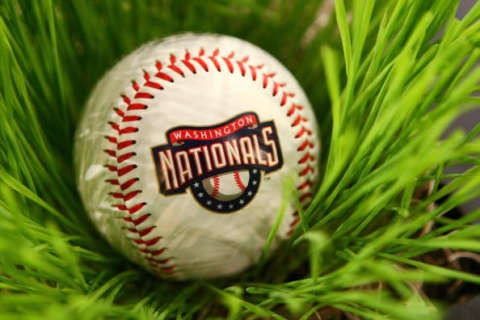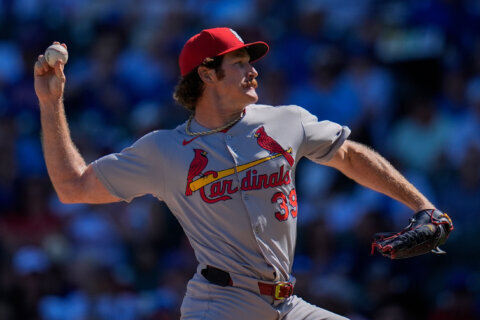As the Nationals prepare to retire Ryan Zimmerman’s No. 11 at Nationals Park, WTOP reached out to several former teammates, managers and team executives who crossed paths with Zimmerman at different stages of his big-league odyssey.
We wanted to know what Zimmerman was like behind the scenes — from an unassuming rookie to a key cog and veteran leader on a World Series winning team. What were the traits that made him a unanimously beloved teammate? What allowed him to come through in the clutch as often as he did? And what are the memories that those who knew him best during his playing career still think about today?
Zimmerman spent his entire 16-year career with the Nationals, ultimately emerging as the franchise leader in several statistical categories, including games played, hits, home runs and RBIs. He also etched his place in the community through several philanthropic efforts, including his creation of the ziMS Foundation, whose mission is to help find a cure for multiple sclerosis.
Below is a sampling from over 20 interviews we conducted with Zimmerman’s former teammates and bosses. They also provided perspective on the fittingness of Zimmerman being the first National to have his jersey number retired.
JIM BOWDEN (GENERAL MANAGER 2005-2009)
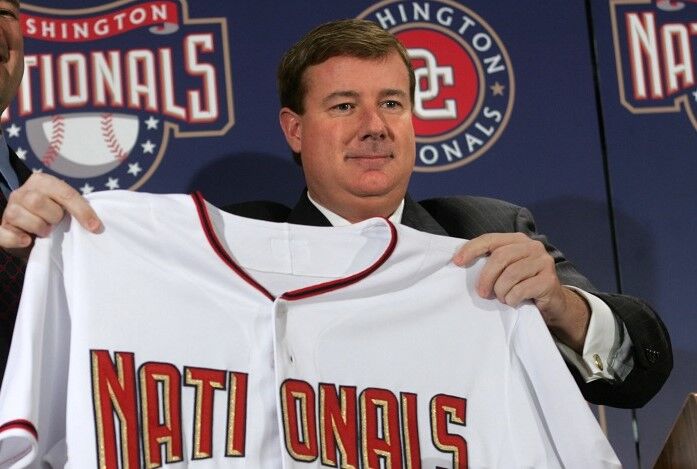
I was the first GM in Washington Nationals history and oversaw the team’s first Amateur Draft in 2005. We had the fourth overall pick in that draft. We felt at the time that the first draft pick of the team should be a player that could be the future face of the franchise on and off the field.
Zimmerman checked all the boxes. On the field, he was a Gold Glove-caliber third baseman, had the special ‘hit’ tools and looked like the power would come in time. More importantly, he had the makeup and character to represent the organization for years to come in a first-class manner. He was quiet, humble and had tremendous lead-by-example leadership qualities. He lived up to all of them.
Selecting him in one of the deepest and most talented drafts in history was easy, but the decision was not unanimous among the team’s brain trust. However, it was Dana Brown, Bob Boone and myself that made the decision that Zimmerman was the right player to select.
We drafted him in June and promoted him to the Major Leagues in September against the wishes of the Major League staff, who didn’t think he could be ready. He played in 20 games that year and hit .397 in 62 plate appearances.
I’ll never forget walking him into the Nationals clubhouse for the first time and saw how nervous he was to meet his manager and Hall of Famer Frank Robinson. His work ethic, processes, poise, composure, leadership and demeanor all graded out 80 out of 80 on the scouting scale.
Special player. Special human being.
BRIAN SCHNEIDER (CATCHER 2005-2007)
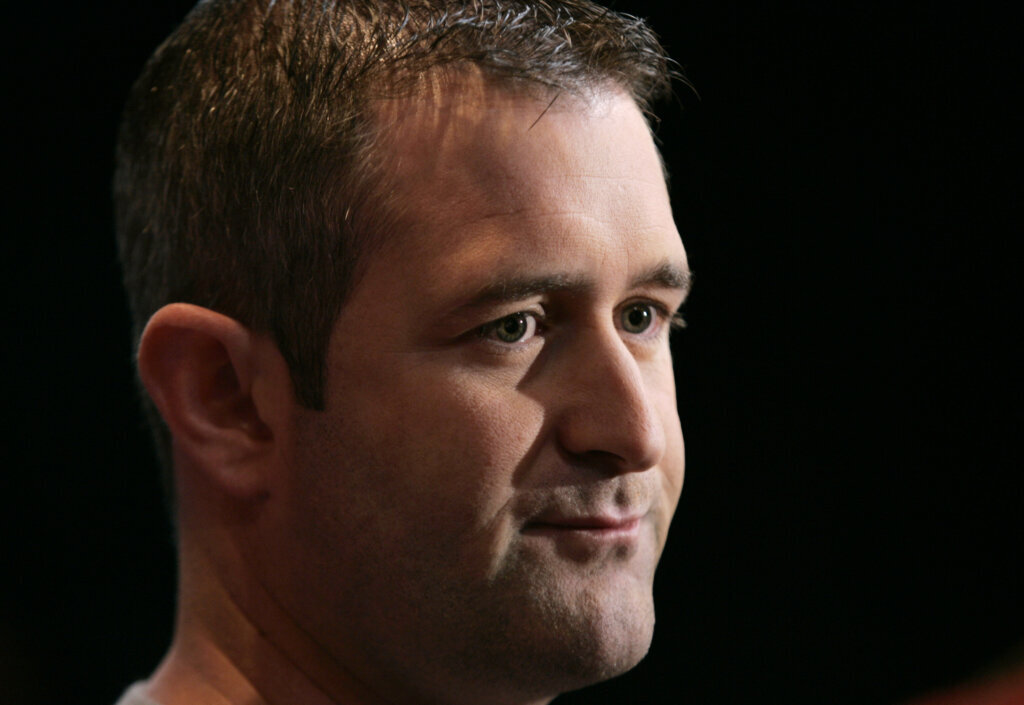
After we drafted Zim, Jim Bowden was throwing out all kinds names like Brooks Robinson and Mike Schmidt, so we thought he was crazy. But, you know what, once we got to see Zim and we saw him play defense, he was pretty darn good over there. I tell kids I coach today, I wish they could have seen Ryan in his first couple of years at third base and how good he was — how you couldn’t bunt on him. He was as good as anyone coming in on the slow rollers. And his range and his strong arm — man, he was good.
I remember when he first came up in 2005. When guys are young and they come up, you could test them out. You’ll see if they’ll do things for the veterans, you’ll see how he reacts when you mess with him a little bit. But from the very beginning, we couldn’t get mad at the guy. He did everything we asked. He handled all the jokes like a pro. And the way he reacted, I took to him. We started taking him for dinners and we took care of him. And we saw early on, nothing fazed him. He was hitting homers and hitting walk-offs against the Yankees, and as tough situations rose up, he did as well. So we knew from the very beginning that he was going to be a darn good player for a long time.
MANNY ACTA (MANAGER 2007-2009)
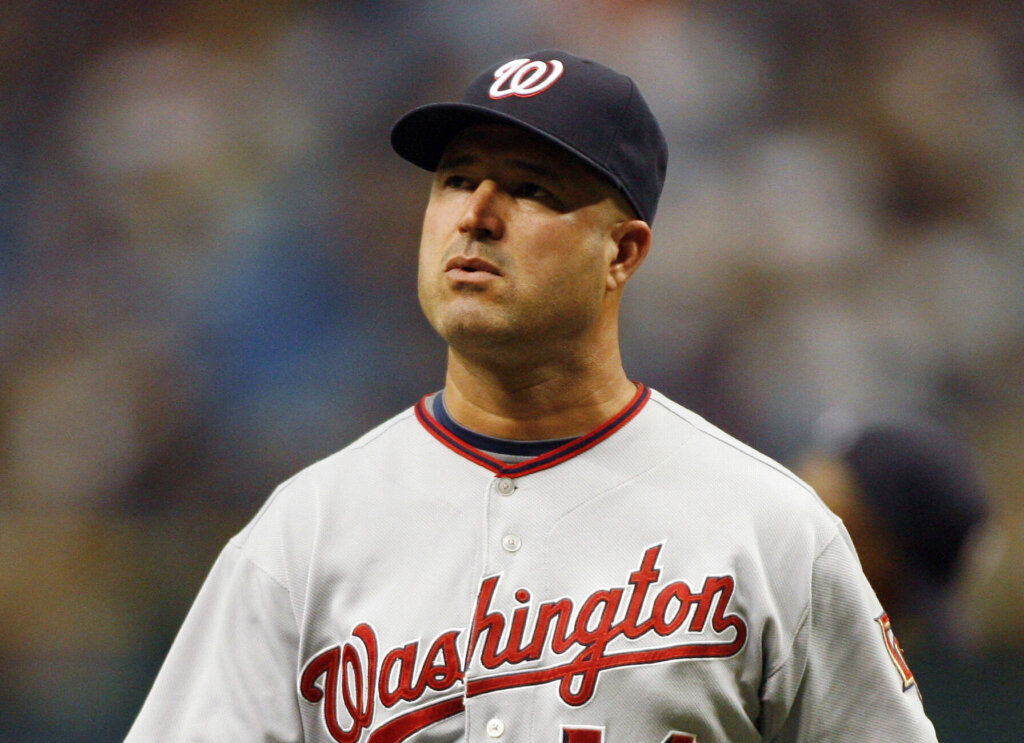
Zim was not only a manager’s dream, he was a franchise’s dream. A lot of franchises are able to get first-round picks to be talented on the field, but Zim was not only talented on the field, but also an outstanding human being in the clubhouse and off the field. It’s like hitting the jackpot.
Throughout the years, he handled himself with so much class, especially those years when we were rebuilding. He never complained about the state of the franchise. He could have rocked the boat, but he didn’t. He reaped those benefits by winning a World Series, and I was so happy for him. If anybody deserved to win a World Series, it was Ryan Zimmerman. He had been through the good, the bad and the ugly in D.C. So, it was a very fulfilling moment for me to see him do that.
He’s the definition a true franchise player. He helped the younger guys; he didn’t try to minimize them or haze them.
He’s a great gentleman of this game.
TYLER CLIPPARD (PITCHER 2008-2014)
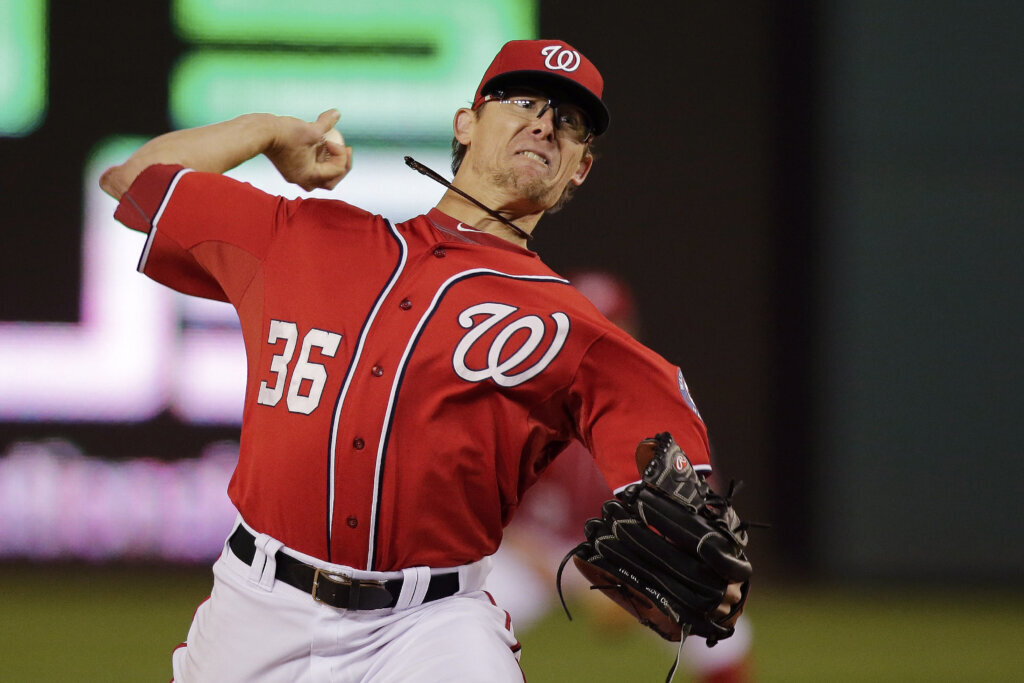
Ryan’s natural baseball IQ was just through the roof. He knew the strike zone and he knew what pitchers were trying to do to him. And if he got his pitch, I swear, he did not miss it. He would go up there, and he would just relentlessly sell out on a certain pitch — and listen, hitters do this all the time, but every time he was selling out on a pitch and he got it, he’d hit it. And a lot of times for a double or a home run. I used to call right-center gap in Nationals Park ‘Zimmerman’s Gap,’ because he’d either go off the wall or homer to right-center all the time.
His ability in the clutch, there were so many moments that found him and he never wavered. He was always the same guy. Always the same approach. That’s why he came through in those moments so many times. It was kind of normal for him. He was just comfortable in those moments. Everyone wanted to see that — his teammates, the fans. And it was interesting how those moments seemed to find him so many times.
Those years — ’08, ’09, 2010 — I was booking Ryan to be a surefire Hall of Famer. He was the full package.
Defensively, oh my gosh. I still to this day think of the foul balls that he would run down, down the left field line towards the tarp, and the over-the-shoulder flip catches where I’m like, ‘How does he even see the ball?’ And he would make these catches look so routine.
JIM RIGGLEMAN (BENCH COACH/MANAGER 2009-2011)
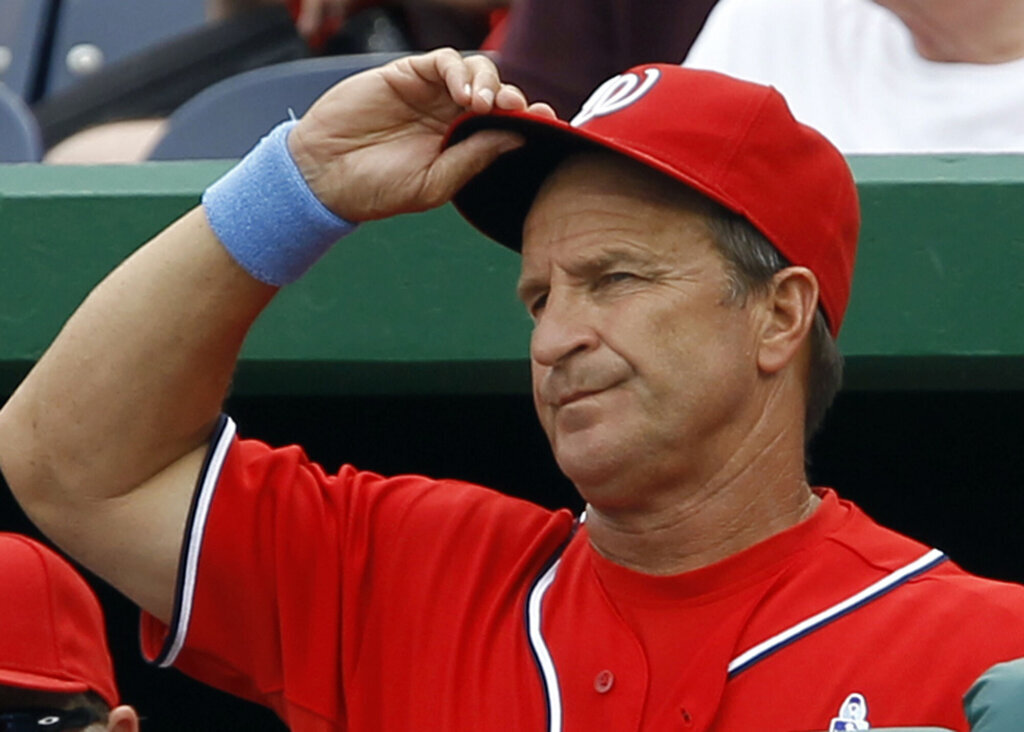
As a manager, there was always a real comfort level with Ryan. Not unlike when I could write the names of Tony Gwynn or Mark Grace into a lineup, when I had Ryan it was a very similar situation. You came to the ballpark and you could go right to that spot in the lineup. You knew every day you could put him in there and work around that. You may have had question marks in the lineup, but you never had question marks there. You could count on him every day.
He was just very polished in all aspects in the game. Offensively with the bat, but he was also a great base runner. He understood game situations: when he should run, when he should not run. He was very easy to manage. If you asked him to do something, he did it.
When I came on as the bench coach in 2009, they were negotiating his contract. So, the first few days of spring training some guys were there, but the mandatory reporting day hadn’t come up yet, so he only came in a couple of days after signing his contract. What was amazing was that he came in and he was not a guy that did a great deal of hitting in the offseason, but he literally — and they used to (say) this about Willie Mays — he could get out of bed in January and hit. He didn’t lose his stroke.
I saw that with Ryan on two or three occasions where he got shut down for an injury, and when he came back, you’d put a plan in place for him to go to the minor leagues for a rehab stint. And he would say, in a very respectful manner, ‘You know, I really don’t need much of that.’ He would maybe take a day or two and play in a rehab whereas some guys would go five, six, seven days. He just didn’t lose his swing. His timing, he had a high-leg kick, he had a lot going on there, but he never lost it. He could literally come to spring training on the first day and get his hits.
CRAIG STAMMEN (PITCHER 2009-2015)
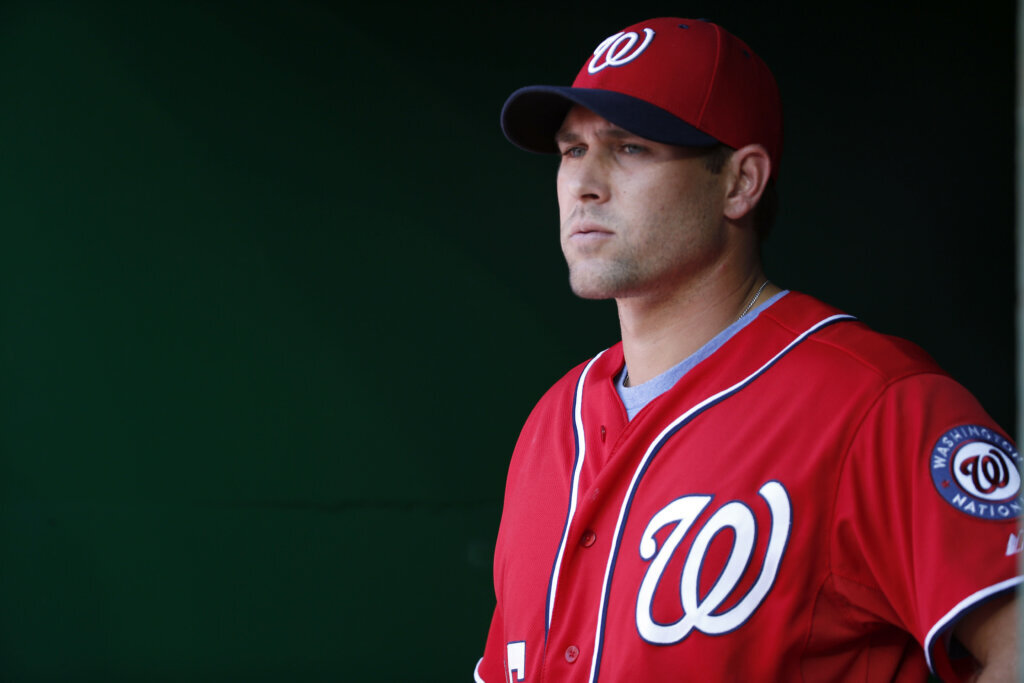
The thing I remember the most about being his teammate was how great of a teammate he was, not only on the field, but off the field too.
When he signed that big contract, a lot of responsibility fell on his shoulders. People calling him ‘Mr. National’ and ‘Mr. Walk-Off’ and all that, but he always stayed humble and remembered that his first duty was to the rest of his teammates and helping them enjoy the Big Leagues with him and enjoy building that franchise into a winner. I’ll always remember how he took care of us — always open to inviting us to his house, inviting us out to dinner. And then at the park, always doing what he could to help us win. One of the best teammates I’ve ever had.
What I remember most about Ryan when I was pitching is how he’d lay his body on the line at third base to save a hit or save a few runs for me. I will never forget how good a third baseman he was. It was special.
He was the one or two guys on the team that made us feel like we were a real big league team and that we had a legit shot to go up against the league’s best. We had a lot of young guys that were still figuring things out, and I remember when I got called up for my (MLB) debut, I was the oldest guy in the starting rotation. Everyone else was younger, so we got thrown into the fire together, but he was the one guy that had the talent to get us through those rough patches so that when we all finally gained enough experience to have success in the big leagues, that we would be ready to start winning games and winning divisions.
DREW STOREN (PITCHER 2010-2015)
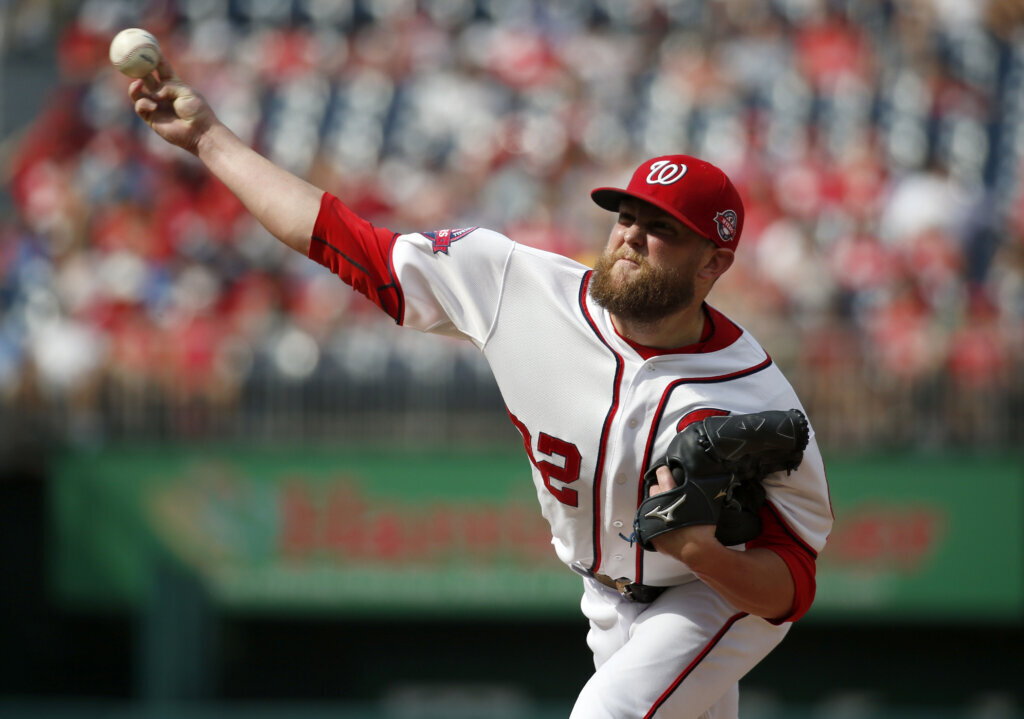
I was super-young when I first came up, and I remember how he took me under his wing. He invited me to go for dinner, and I’ll never forget going to his house for the first time and his Gold Glove and Silver Slugger awards were just sitting there on his bar. Not that I ever had a chance to win any of those awards, but probably the last place I’d put them would be on a bar. That just blew my mind. If I had those awards, I’d have some nice glass case built into my house that was locked, but for him, no, it was just sitting right there. On a bar. But that’s Zim.
He treated everybody — wherever they fell on the relative food chain — with respect. It would be easy for a guy like that, who put the organization on the map, to kind of turn his back on a young guy like me. Kind of maverickish — that’s how I was. But he took me under his wing, and he just led by example and treated everyone with respect. It meant a lot to me as a young guy to have a guy like that be so welcoming. It was a matter of getting it, and he’s a guy that’s certainly the epitome of getting it.
With his ability and his talent and his accomplishments, he had every right to have a big ego and to act like he was better than everybody else. But that was the furthest thing from the way he went about his business. I think that says a lot about him as a person and as a teammate.
DENARD SPAN (OUTFIELDER 2013-2015)
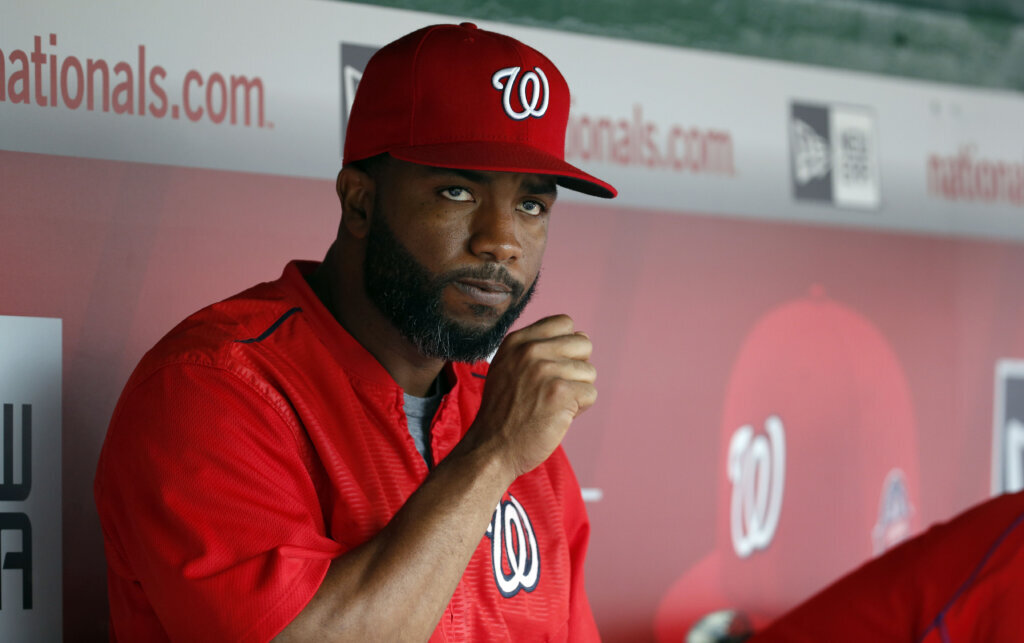
I remember watching the Nationals in those early years — ’07, ’08. I was just starting in the league, and they were not exactly the team that everyone wanted to model themselves after. But he was one of the early bright spots of the organization, and he took on that role of being the man of that franchise. So it really all started with him. As the other draft picks and the talent starting to mature, it became a model franchise, but it started with him.
During my three years in Washington, there were a lot of personalities on the team. We had Jayson Werth — everybody knows his personality. We had Bryce Harper, and everyone knows his personality. And we also had a lot of younger highly touted prospects just figuring things out. But then you look over, and there’s Ryan Zimmerman, and I felt like he was just the glue to the team. He was steady, mellow, even-keeled, and I just feel like he was a guy that everyone could look to when things got too high or too low. We would follow his temperature. And when we saw the way he worked and competed, it just elevated everybody’s game. He made everybody else want to fall in on line and jump on his train.
MATT WILLIAMS (MANAGER 2014-2015)
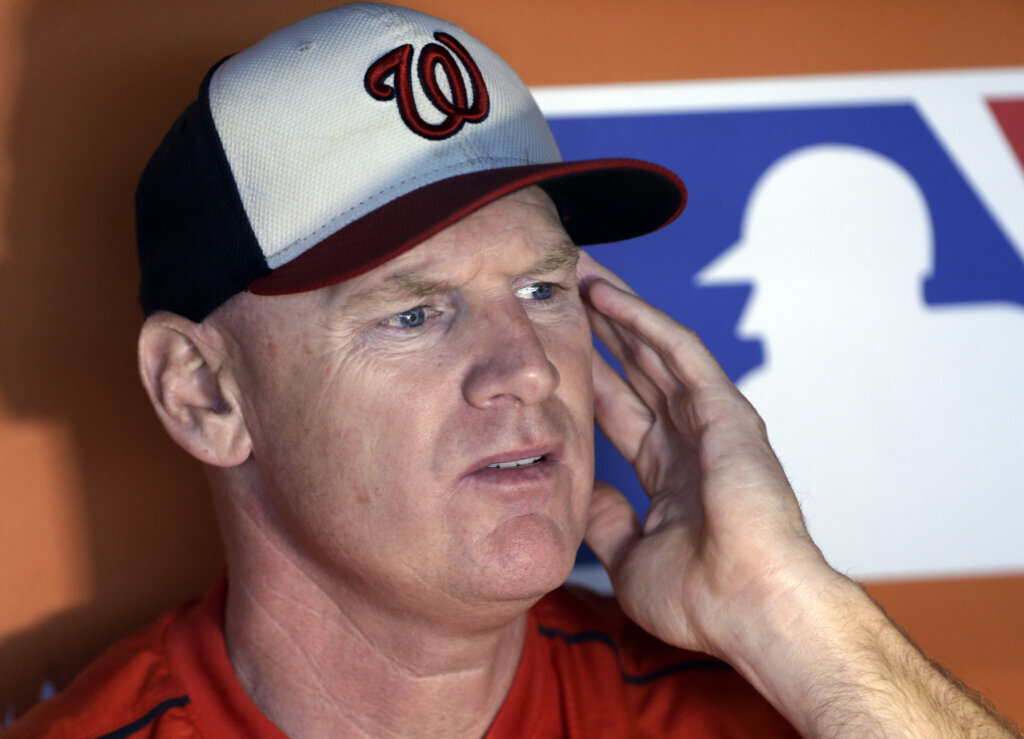
The year we made the adjustment to move him to first base (in 2015), he worked extremely hard, because he took his defense seriously. He wanted to contribute on that end as well. It wasn’t just the offensive side.
It was a lot of long days in spring and a lot of extra work was involved in getting him prepared. He transitioned very well. And a position change, especially when you’ve won a Gold Glove at the (previous) position, it’s not easy to change. But it was necessary for him, and he embraced it. The reason that he was so successful was because of the fact that he did embrace it. He took it very seriously. It was very important for him to be good in every aspect of the game, a leader and good player and somebody that the team could rely on.
For me, the telling sign of him and the way he is, is his field — Ryan Zimmerman Field, right next to Nationals Park. He was the first one with the organization to create (a field in his name). We worked with Under Armor on creating it, and the giveback to the community and the appreciation of everybody being supportive of him is the true trait that I take.
Sure, lots of hits, lots of great plays, Gold Gloves, Silver Sluggers, those are baseball things. But the man, that particular thing is what stands out to me — that he was willing to help the community. He certainly did a lot of work within the community and wanted to continue his legacy in that area and be part of all the kids’ joy and the parents’ joy that they could come out and play on the field.
DANIEL MURPHY (INFIELDER 2016-2018)
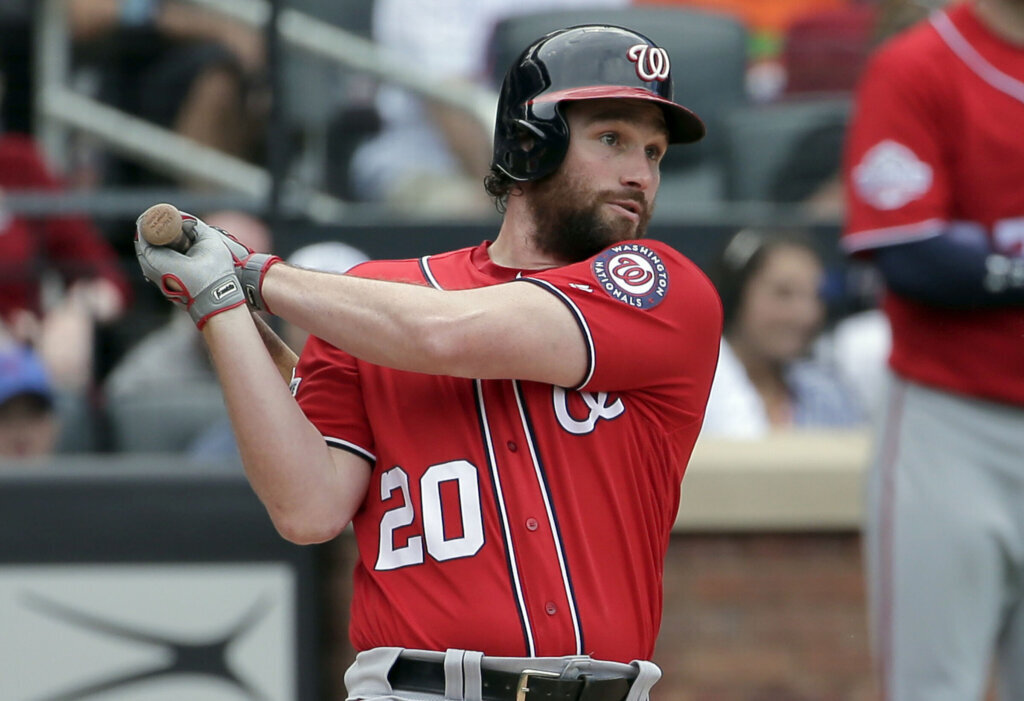
Zim and I were locker mates, and I just appreciated how steady he was. I was impressed with how physically put together he was and how intent he was on eating properly and lifting and doing all things necessary to take care of his body. And when we played together, he was put together. He worked hard. That was something I got to observe. He had a guy who prepared his meals, and I ended up getting the same guy. Zim spurred me forward with that. When you see your teammate willing to make those sacrifices, I was like, ‘Well, what’s my excuse?’ So he actually really pulled me forward. He was really put together. And that’s a choice. But he made that choice. He was a physical specimen. He pushed me to be better.
On the field, I remember one time he got Clayton (Kershaw) in L.A. in a day game. And he had been waiting for a breaking ball for a couple of days. You know, we go to L.A. and we see ‘OK, Clayton on Sunday.’ And then in his first at-bat, he got him. He homered. I was on-deck and he came through as he hit home plate, he had just given us a 1-0 lead, and he had this look on his face like: ‘Man, I’ve been waiting for that pitch for two days! And I got it and I didn’t miss it!’ And he slapped my hand and he went into the dugout. I remember the look on his face of someone setting a goal and executing the plan perfectly. There was just exhilaration and exuberant joy. That was awesome.
Zim was so unique because he would look for breaking balls. I almost exclusively stayed on the fastball. So to hear him say: ‘Yeah I’m going to look for this breaking ball in this spot, and I’m not going to come off of it. I’m going to stay on it the whole way.’ That was unique. I was unwilling to do it. But he’d have a plan. And if he’s looking for a breaking ball early, he’s going to take it the whole way. But when he’d get it, he’d unleash these salacious swings on it. We would talk about it. ‘What are you looking for?’ And he’d say he’s looking for a certain pitch, and not leaving until he gets it. Then he’d get it and he wouldn’t miss it.
ADAM EATON (OUTFIELDER 2017-2020)
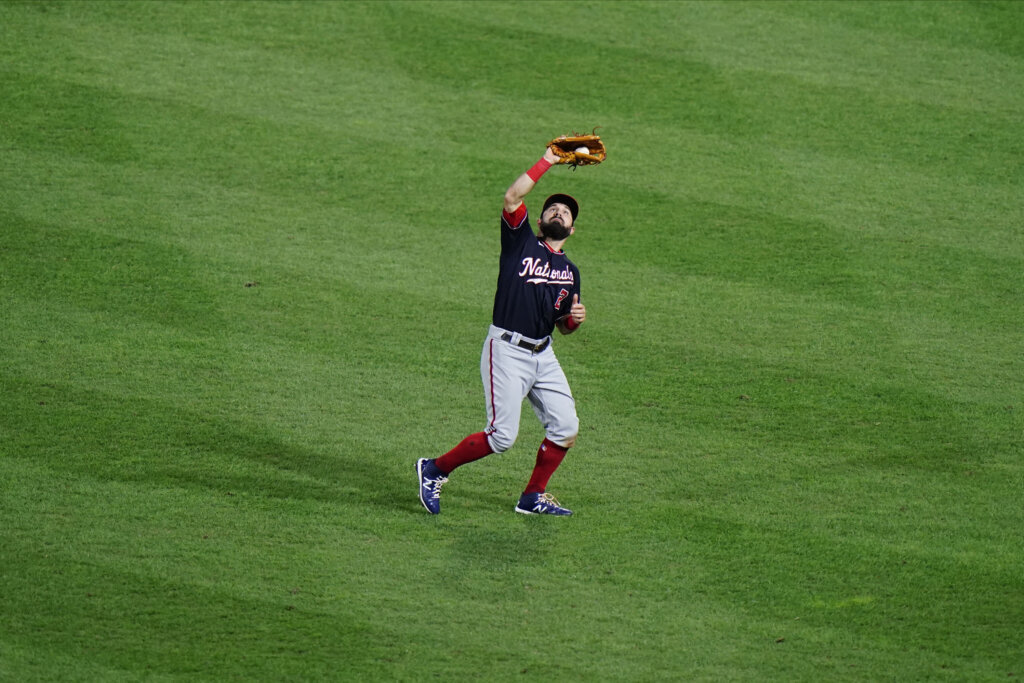
Zim always just sat on a different chair. If you were a headliner or a good player, you always seemed to take a chair behind him. Whenever he said something in the clubhouse, it was heard. Zim just had that feel in the clubhouse and the respect (from his teammates). If he said something, he was doing it himself. And for me, that’s what a leader is.
I think if one thing resonates with me is when we were 19-31 and we were struggling early in ’19. I just remember we came in after a loss. Zim came in and yelled: ‘Who cares?! On to the next game. Nobody freakin’ cares about us.’ And he basically meant there was no team in our division that was going to feel sorry for us. We’re the most talented team in the division. No one is saying, ‘Oh, the poor Nationals.’ And he was really raising his voice, and when he’d raise his voice like that, everyone was quiet.
And he was usually one of the last ones off the field, so we’re all sitting there in the clubhouse wondering how did we lose another game, and he comes in and says, ‘Who freakin’ cares?!’ I think that helped turn everyone around. The only people that will turn this around are us. Nobody is going to lay down for us. That always resonated for me, because I feel that guys that are a little more vocal in the clubhouse at certain times, if they continue to talk, it becomes a little bit of white noise and it resonates less. But when he stepped up, for me that truly helped us spin that season around. I think everyone kind of looked in the mirror. We’d all follow Zim into any battle. His words just carried more.
It’s almost like a father. He doesn’t yell at you all the time, but when he does, it means something. Zim wouldn’t say a whole heck of a lot and would sometimes allow situations to get overcooked. But then when he finally did (speak), everyone would take a step back, take a seat and listen to what he had to say. He’d always pick the right time. He never overstepped his boundaries, never said too much, would always say the right words. One of the most impressive guys I played with — just how he could a hold a room. He wouldn’t say a word for a month, but then he could then hold a room for a 15-minute session. It’s a credit to how he went about the game.
SEAN DOOLITTLE (PITCHER 2017-2020, 2022)
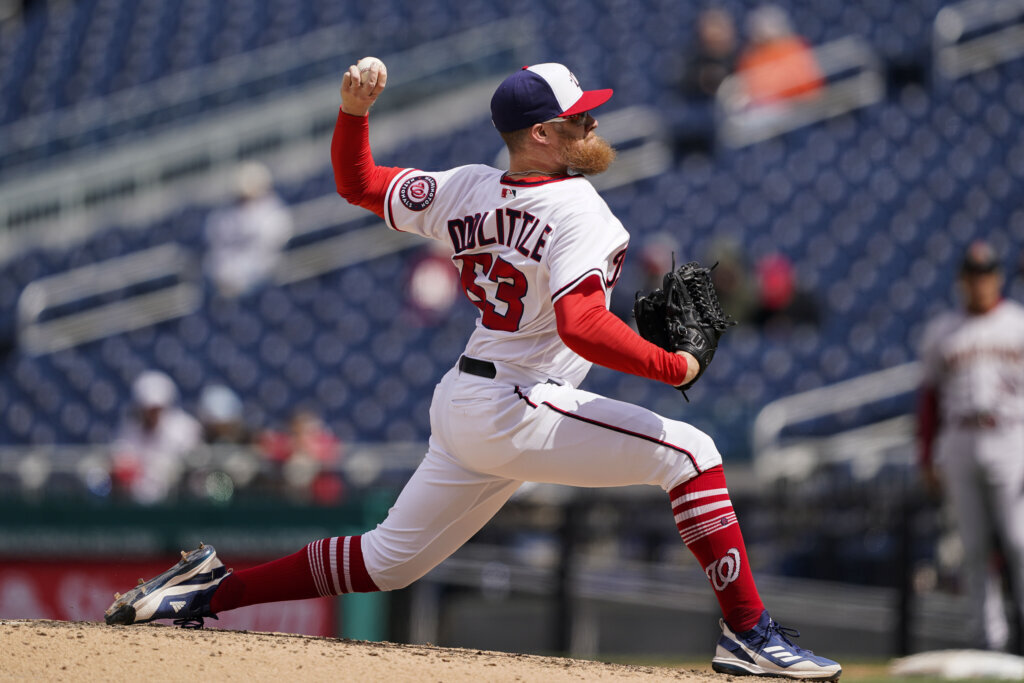
In 2005, we played together at Virginia, but when I got traded over here in ’17, it had been a while since I had seen him. And I remember I met the team in Anaheim and I got to the field super-early that day. And he was one of the first players to get there. It was right after he had broken the franchise home run record, so I went over to him and I was like, ‘Bro, Mr. Home Run King can I have your autograph?!’ Sort of razzing him. And he just smiled and rolled his eyes. But right away, you could tell it was the same guy I played with in 2005 at school. All of the success that he had, and everything he’s meant to the franchise, he was still the same guy. And to me, that was really cool.
It was so calming for me to interact with him and be like, ‘Oh, this is the guy I remember,’ and kind of fall right back to the last time we were teammates, 12 years before. For me, it was my first time getting traded, first time walking into a different major league clubhouse. I was super-nervous, and he was like the same dude I knew in 2005, and I said to myself, ‘OK, I’m good.’ Having it be just like I remembered in 2005 right off the bat, I was like, ‘OK cool.’ And I know he does that for a lot of guys — new guys, old guys that would come here, but that’s Zim. He’s the calming presence, the veteran leader that welcomes guys in and leads by example.
KURT SUZUKI (CATCHER 2012, 2019-2020)
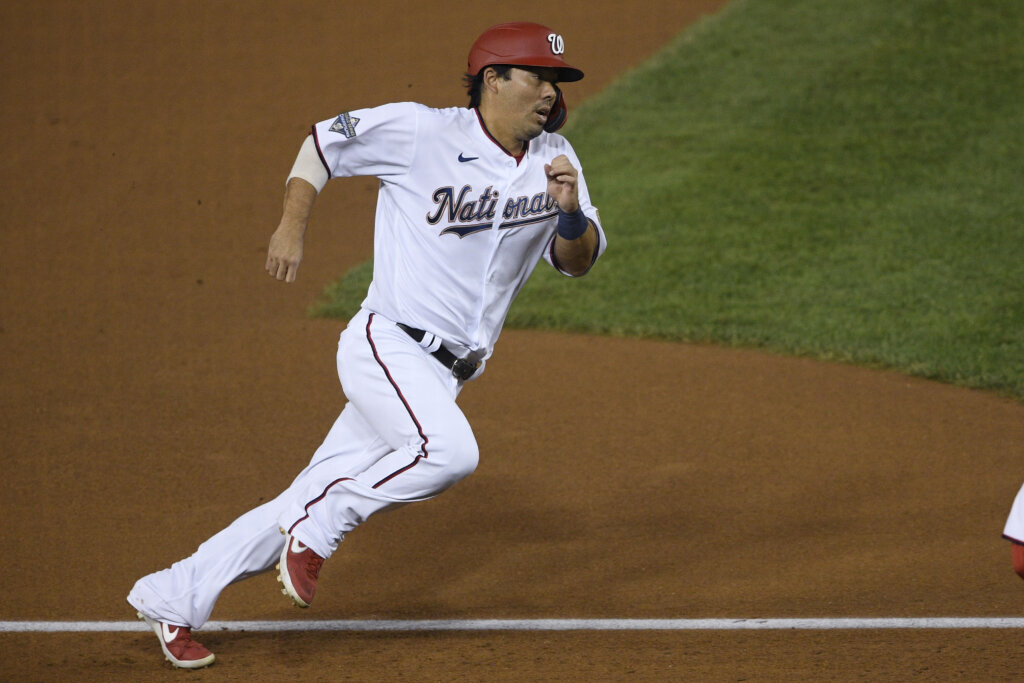
With Zim, he’s the epitome of a professional. He plays the game the right way and is a great teammate. But he’s also a great teacher. With some of the young guys that we had (in 2012) — Bryce Harper, Steve Lombardozzi, Danny Espinosa — you see Zim. The way he taught them, he was like an extra coach. To learn from a guy like Zim with his Gold Gloves and Silver Sluggers, that’s a pretty cool thing and something I noticed when I first came over in 2012.
Whether he was starting or coming off the bench to pinch-hit, watching him prepare for an at-bat, how he studies the pitchers and how he studies the pitch sequences, it’s pretty incredible. Obviously he has the talent, but you can understand why he was such great hitter. He almost thinks along with the pitcher, watching him throughout the game. His baseball IQ is off the charts.
I’ll never forget the three-run homer that he hit against the Dodgers in Game 4 (in 2019) to give us a Game 5 in L.A. I was on-deck. Max [Scherzer] was dealing, we were up one. He came up. The wind had been howling, and the ball was starting to get knocked down a little bit, but he absolutely destroyed a high fastball off Pedro Baez. And we didn’t know if it would go out because of the wind, but this thing just cut across the wind, and it gave us a comfortable lead. It gave us a feeling of ‘OK we got this.’ And I was on-deck thinking: ‘Of course! Why wouldn’t he be the guy to do this?!’ He’s done it before. He’s been here for all the ups and downs, and it’s just fitting for Zim to come up with clutch hit after clutch hit after clutch hit. It was just awesome. He could thrive in those situations. His mentality, understanding the situation, not letting it get too big. That was Zim.
BRIAN DOZIER (INFIELDER 2019)
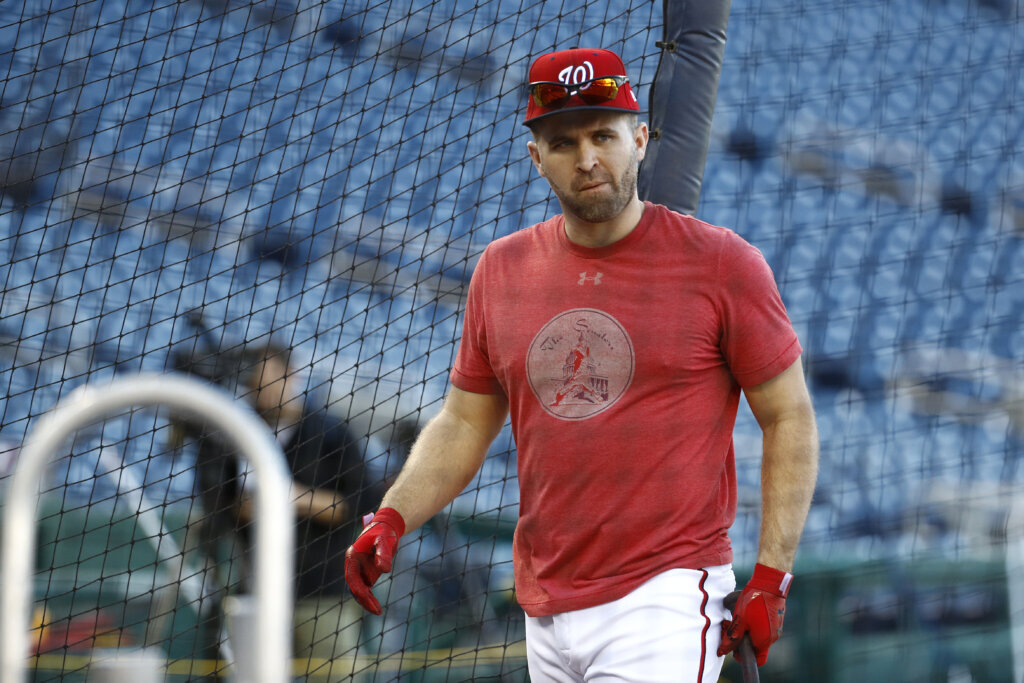
He’s the ultimate guy that every franchise wants leading the pack and representing them on and off the field. Zim is a buttoned-up guy when it comes to being the face of the franchise. But behind the scenes, especially when he gets on the good bourbon, he can let loose a little bit.
So in 2019, what got us going a little bit was the whole (postgame celebratory) shirtless thing. And if I’m going to be frank, maybe sometimes it was a little more than just the shirt, but Zim loved it. It was kind of his idea when I bounced it off of him. And Zim and I have talked about this, but you can’t recreate what we had. (The 2019 season) was the most fun we had, and it was led by Zim from the get-go.
We had this thing after wins where we would take our shirts off and run around (and) do a line dance (in the clubhouse), and that was even back at the end of May when we were the worst team in baseball. Anibal Sanchez was kind of the ringleader of the dance, and eventually the whole team got into it. Zim was all for it.
On the road, Zim was our main guy on the bus. Everywhere we landed, he’d get on the microphone on the bus and do his thing. We had a little text message thing, where you’d text him on the bus, and he’d have to read (over the mic) whatever was texted. Everything remains confidential. The sender is never revealed, so it’s basically just ragging on teammates and keeping everyone laughing. We had to have that every time we landed. Zim was that guy. He led that charge. Everyone just kind of looked to Zim for any kind of team meeting or to get us going in the right direction.

